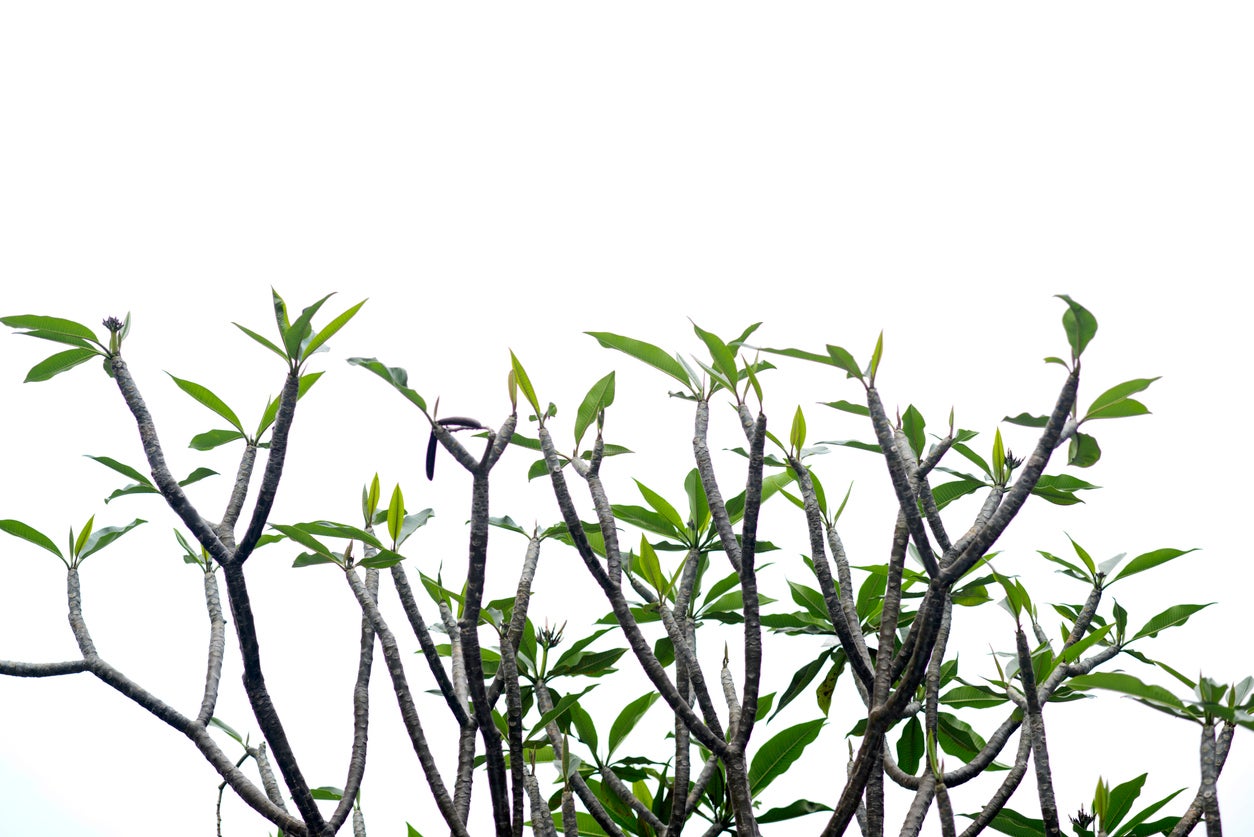Making A Plumeria Branch: How To Encourage Plumeria Branching


Sign up for the Gardening Know How newsletter today and receive a free copy of our e-book "How to Grow Delicious Tomatoes".
You are now subscribed
Your newsletter sign-up was successful
Also known as frangipani, plumeria (Plumeria rubra) are lush, tropical trees with fleshy branches and sweet-smelling, waxy blooms. Although these exotic, warm climate trees are surprisingly easy to grow, they can become lopsided or spindly. If your goal is to encourage plumeria branching, thus creating a fuller, balanced plant with more blooms, pruning is the way to go. Let’s learn how to get plumeria to branch.
Making a Plumeria Branch
Prime time for plumeria pruning is in spring, before new blooms emerge. This is the best way to encourage plumeria branching, as two or three new branches will emerge from each cut.
Prune the plumeria a couple of inches (5 cm.) above the junction of two branches. If the plant has grown out of control, you can prune drastically, about 12 inches (31 cm.) above the soil. If the tree just needs a bit of rebalancing, prune higher up.
Sterilize your pruning shears before beginning, using rubbing alcohol or a mixture of bleach and water. If you’re pruning more than one plumeria plant, sterilize the blades between trees. Also, be sure the shears are sharp, which allows you to make clean cuts. With dull blades, you’re bound to tear the plant tissue, which may introduce disease.
Make cuts at a 45-degree angle. Face the angle towards the ground to prevent water from pooling at the point of the cut. A milky, latex substance will ooze from the cut. This is normal, and the cut will eventually form a callus. However, be sure to wear gloves, as the substance causes skin irritation in some people.
Expect fewer flowers the first year after plumeria pruning. However, the tree will soon rebound and bloom better than ever.
Be sure to save the plumeria prunings; it’s easy to root new plants from the cut branches.
Sign up for the Gardening Know How newsletter today and receive a free copy of our e-book "How to Grow Delicious Tomatoes".

A Credentialed Garden Writer, Mary H. Dyer was with Gardening Know How in the very beginning, publishing articles as early as 2007.